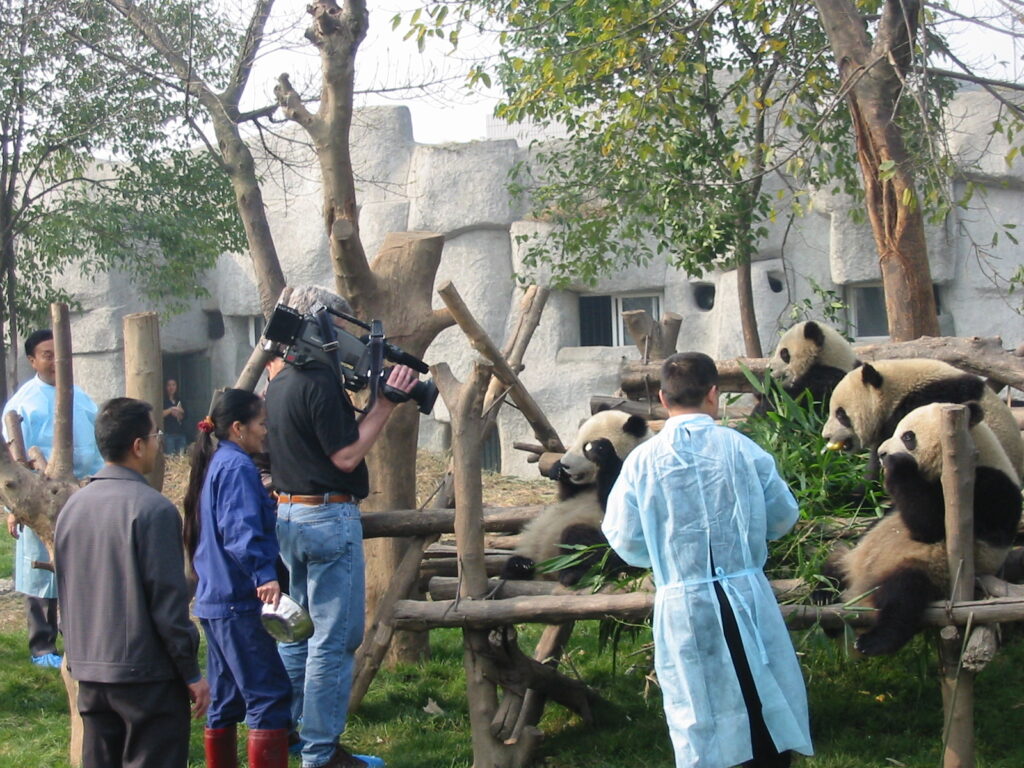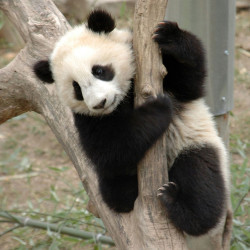
Last Saturday (April 16) marked 50 Years of Panda-mania in the United States. In April, 1972 Ling Ling and Hsing Hsing arrived at Washington’s National Zoo. The subsequent Chinese / American giant panda program has expanded to other zoos, currently including Atlanta and Memphis, and attracted millions upon millions of visitors — in person and online.
On a personal note though, the anniversary has me thinking about the opportunities I’ve had to get close and learn about these amazing animals and the dedicated people determined to help them survive.
Working for National Geographic in 2003, Patty Kim, Ron Ling, and I traveled to China to document the transfer of two giant pandas from the Bejing Zoo to the Memphis Zoo. It was an eye-opening trip which included a visit to the Chendu Panda Research Base where we met scientists, caretakers, and a bounty of black and white cuddly cubs. Our journey culminated in a once in a lifetime, transpacific flight in the rear of the Fedex cargo plane transporting YaYa and LeLe to their new home in the Memphis Zoo.
A few years later I was hired by Federal Express to produce multimedia programming to highlight their corporate involvement in panda conservation. These projects followed the path of Tai Shan, the first surviving panda cub born at the National Zoo. Our cameras caught the celebration surrounding his first birthday, and the goodbye party before his eventual his loan agreement transfer to China in 2010. A wildly popular zoo celebrity among the public, it was touching to also witness the emotional impact Tai Shan’s departure had on the researchers at the zoo.
I’m thankful for my time with the pandas, including family cameos in some of our productions — my father-in-law provided voiceover work for translating Chinese scientists and my 11 year-old daughter got to say her farewell to Tai Shan, on camera.
Giant pandas are an international symbol of conservation. Based on what I’ve learned during these projects I remain cautiously hopeful for their future, and despite the evidence — ours.
Goodbye Tai Shan









